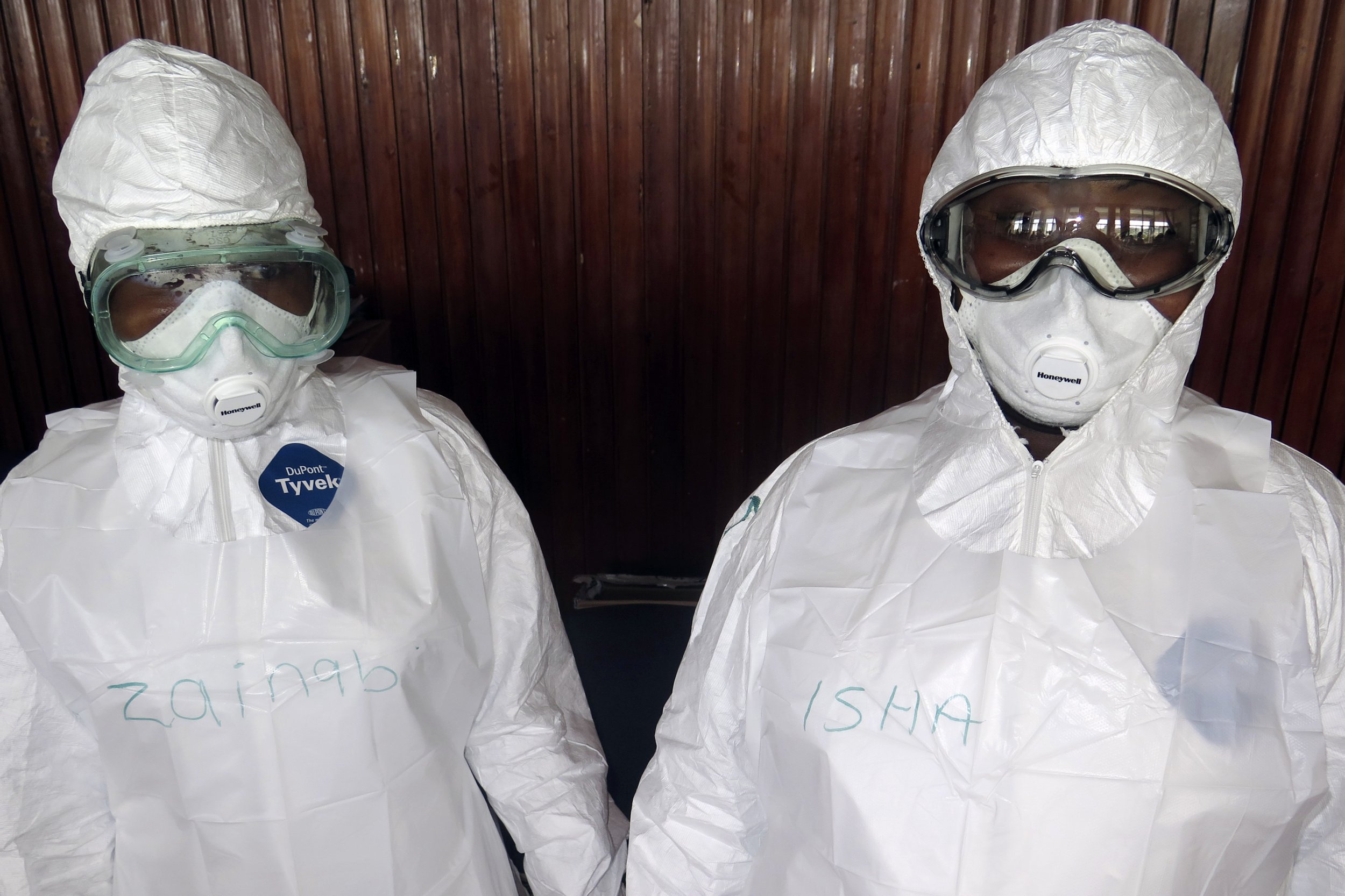
In November 2014, I travelled to Sierra Leone with the medical charity Doctors of the World to help in the fight against Ebola. For two months, I helped set up and then run an Ebola Treatment Center in Moyamba at the peak of the epidemic. Upon my arrival, I found a country under siege. Army checkpoints on the roads were stopping all cars, but with thermometers rather than guns. Public gatherings were banned, schools were closed, even Christmas was cancelled. The people of Sierra Leone were living in a climate of fear, not knowing who would be the next person to catch this malevolent disease.
I returned this November to a different country, a different world. The country had just been declared Ebola-free and normal service had resumed. People were gathering under trees and zinc shelters, talking and laughing. The curse of Ebola had been lifted and joy had come home.
The Ebola epidemic was the biggest public health threat in modern history and the world was slow in responding to that threat. On Monday, a report by international health experts criticized the World Health Organization for its delay in declaring Ebola to be a global emergency. When the international community did belatedly leap into action, doctors and nurses from across the world rushed to the frontline to support their West African counterparts.
By January, Ebola had been contained. A long and bumpy tail of the epidemic persisted but, on November 8, Sierra Leone was declared Ebola-free and national celebrations erupted. Liberia's earlier celebrations at vanquishing Ebola were dampened in November with the news that three new cases have been notified.
A recent study published in the Proceedings of the National Academy of Sciences estimated that the Ebola hospitals in Sierra Leone saved more than 56,000 lives in the country—an impressive result that is testimony to the endeavors of the international and domestic medical teams that set them up and ran them in hugely challenging conditions. But, after the celebrations of local communities and backslapping from international aid organizations, what happens next?
Sierra Leone and Liberia are two of the poorest places in the world—183rd and 175th respectively in the United Nations Development Index of 187 countries. Ebola has scared off tourists from the beautiful beaches, and while mining companies are slowly returning following the Ebola exodus, the falling price and demand for many of the region's minerals means many mines will remain shut, limiting this important revenue for these extractive economies.
I arrived back to my Ebola hospital expecting joy and relief, but found in its place anxiety and concern. The nurses and support workers are soon going to be out of work and there are no jobs in town. While Ebola was an acute threat to their lives, unemployment is the longer-term shadow hanging over their futures. And the economic dividend of the international response will be brief as the world turns its back and moves on to the next emergency.
Never before have there been so many Ebola survivors, with 4,000 in Sierra Leone alone, and for the first time doctors are beginning to understand the long-term consequences or sequelae of the disease. Around 50 percent of survivors are experiencing lasting effects—often non-specific, such as painful joints or headaches, but some have developed vision-threatening inflammation of their eyes. The persistence of the virus in the semen for up to nine months raises the threat of new cases occurring through sexual transmission. The initial stigma and fear survivors encountered when they were first discharged has faded with the end of the epidemic, but the contagious nature of the disease means that many are returning home as orphans or widows and widowers.
The weak economy in the region means that there is little money to pay for health care and the health systems are fragile. Communities have lost trust in their clinics and hospitals as they became plague centers at the height of the epidemic. Many doctors and nurses died in the front line. The focus on Ebola has been a big distraction from the rest of health care. One study published in the Journal of Public Health showed that, as a result of Ebola, maternal and child health indicators have deteriorated and other infectious diseases have been neglected.
This doom and gloom is all too depressingly familiar in this part of Africa. But there are glimmers of hope. The region is politically stable. The Ebola response has left a legacy of strong infection control. Tourists are starting to trickle back. The mining industry will survive. But as with any conflict, the time when support is most needed is just after the last battle has been fought. Now is the time for the international community to support the region in post-Ebola reconstruction. The epidemic cost the West $1.6 billion. Prevention is better, and cheaper, than the cure.
Dr. John Wright is the Director of the Bradford Institute for Health Research and was one of the first British doctors to travel to Sierra Leone to respond to the Ebola epidemic. His blog is at johnwrightsierraleone.blogspot.co.uk.
Uncommon Knowledge
Newsweek is committed to challenging conventional wisdom and finding connections in the search for common ground.
Newsweek is committed to challenging conventional wisdom and finding connections in the search for common ground.
About the writer
To read how Newsweek uses AI as a newsroom tool, Click here.








